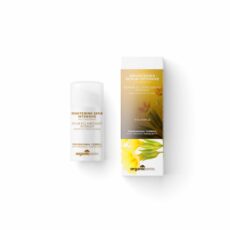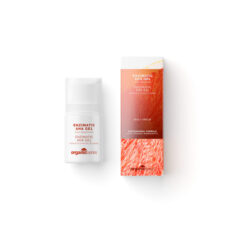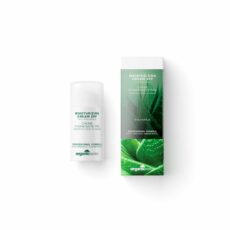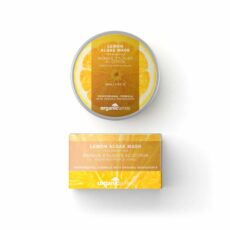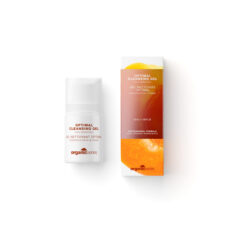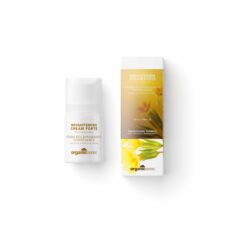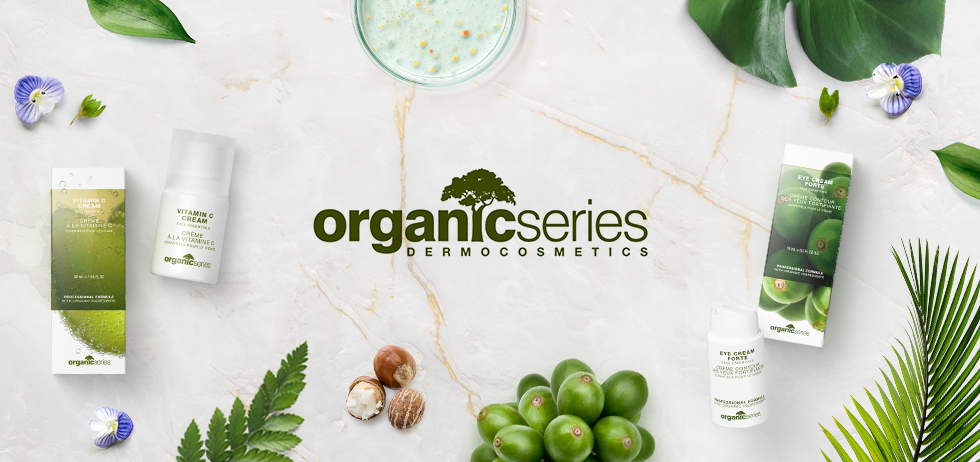Fight skin discolourations
Skin discolourations:
Skin discolorations, such as hyperpigmentation, melasma, and dark spots, can be a source of frustration for many. These issues are often caused by sun exposure, hormonal changes, aging, or inflammation. Addressing these concerns requires a combination of preventive measures, effective treatments, and consistent skincare routines. Here are 18 of the best ways to battle skin discolorations and achieve a more even skin tone.
1. Sunscreen Use
- Regularly applying a broad-spectrum sunscreen with at least SPF 30 is crucial. Sunscreen protects the skin from harmful UV rays that can exacerbate discolorations and cause new ones. Apply it daily, even on cloudy days, and reapply every two hours if you’re outdoors.
2. Vitamin C Serum
- Incorporate a vitamin C serum into your morning skincare routine. Vitamin C is a potent antioxidant that helps to brighten the skin, reduce the appearance of dark spots, and protect against free radical damage. It also aids in collagen production, improving overall skin health.
3. Chemical Exfoliation
- Use chemical exfoliants such as alpha hydroxy acids (AHAs) and beta hydroxy acids (BHAs). AHAs like glycolic acid and lactic acid help to remove dead skin cells and reveal brighter skin, while BHAs like salicylic acid penetrate pores to clear out impurities and reduce pigmentation.
4. Retinoids
- Retinoids, including retinol and prescription-strength tretinoin, are effective in accelerating cell turnover and fading dark spots. They also help to improve skin texture and reduce the signs of aging. Start with a low concentration to minimize irritation and gradually increase usage.
5. Niacinamide
- Niacinamide, or vitamin B3, is a versatile ingredient that helps to reduce inflammation, minimize pores, and lighten dark spots. It can be used both morning and night and is often found in serums and moisturizers.
6. Hydroquinone
- Hydroquinone is a powerful skin-lightening agent that inhibits melanin production. It is available over-the-counter in lower concentrations and by prescription in higher strengths. Use it under the guidance of a dermatologist, as prolonged use can lead to skin irritation.
7. Azelaic Acid
- Azelaic acid is a gentle yet effective ingredient that helps to reduce pigmentation, fight acne, and improve skin texture. It’s suitable for sensitive skin and can be used alongside other treatments for enhanced results.
8. Licorice Extract
- Licorice extract contains glabridin, which inhibits melanin production and reduces the appearance of dark spots. It also has anti-inflammatory properties, making it suitable for sensitive and irritated skin.
9. Kojic Acid
- Kojic acid is derived from fungi and is effective in lightening skin discolorations. It works by inhibiting the enzyme tyrosinase, which is involved in melanin production. Kojic acid is often found in serums, creams, and soaps.
10. Arbutin
- Arbutin is a natural derivative of hydroquinone that works to lighten dark spots and even out skin tone. It is less irritating than hydroquinone and can be used daily for gradual brightening effects.
11. Regular Exfoliation
- Regular physical exfoliation with gentle scrubs or tools like a konjac sponge can help to slough off dead skin cells and improve skin texture. Be careful not to over-exfoliate, as this can lead to irritation and worsen discoloration.
12. Laser Treatments
- Professional laser treatments such as intense pulsed light (IPL) and fractional laser therapy can effectively target and reduce hyperpigmentation. These treatments should be performed by a qualified dermatologist or skincare professional.
13. Chemical Peels
- Chemical peels use acids to exfoliate the top layer of the skin, revealing fresher, brighter skin underneath. They can range from mild peels with minimal downtime to deeper peels that require a longer recovery period. Consult with a dermatologist to determine the best type for your skin.
14. Microneedling
- Microneedling involves using fine needles to create micro-injuries in the skin, stimulating collagen production and promoting skin regeneration. This treatment can help to reduce the appearance of dark spots and improve overall skin texture.
15. Professional Facials
- Regular professional facials that include treatments like exfoliation, masks, and light therapy can help to maintain a brighter and more even skin tone. Look for facials that target pigmentation and include brightening ingredients.
16. Proper Hydration
- Keeping your skin well-hydrated is essential for overall skin health and can help to improve the appearance of discolorations. Use a moisturizer that suits your skin type and includes hydrating ingredients like hyaluronic acid and ceramides.
17. Healthy Diet
- A diet rich in antioxidants, vitamins, and minerals supports skin health from within. Foods high in vitamin C, vitamin E, and beta-carotene can help to protect the skin against damage and promote a brighter complexion.
18. Consistent Skincare Routine
- Consistency is key in addressing skin discolorations. Establish a daily skincare routine that includes cleansing, exfoliating, treating with targeted serums, moisturizing, and applying sunscreen. Stick to your routine and be patient, as it can take time to see significant improvements.
Conclusion
Battling skin discolorations requires a combination of preventive measures, targeted treatments, and consistent skincare habits. By incorporating these 18 strategies into your routine, you can effectively reduce the appearance of dark spots and achieve a more even, radiant complexion. Remember to be patient and persistent, as it can take time for these treatments to show visible results. Consulting with a dermatologist can also provide personalized guidance and recommendations tailored to your specific skin concerns.
Understanding the causes of skin discolouration
Discolourations on the skin may appear in different ways and forms. Some of the types of skin discolouration include hyperpigmentation, hypopigmentation, melasma, vitiligo, and post-inflammatory hyperpigmentation. Hyperpigmentation refers to the excessive production of melanin, the pigment that provides colour to the skin, leading to dark spots and patches. Hypopigmentation refers to a loss of pigmentation, resulting in the skin becoming lighter than normal.
Melasma is a skin condition characterised by the development of brownish patches on the skin, and it is commonly caused by hormonal changes during pregnancy or the use of birth control pills. Vitiligo is a skin condition characterised by the loss of melanin on the skin, resulting in the development of white patches. Lastly, post-inflammatory hyperpigmentation is characterised by the dark marks that are left on the skin after an injury or skin condition, such as acne.
To fight skin discolourations, there are six best expert tips you should consider. First, it is important to use a high SPF sunscreen to avoid the occurrence or worsening of discolourations due to sunlight exposure. Sunscreen must be applied daily, even when it is cloudy or during winter. Second, quitting smoking and reducing alcohol and caffeine intake can help improve skin health and reduce skin discolouration. Third, maintaining a healthy diet and staying hydrated can significantly improve skin health, hence reducing the risk of developing skin discolouration.
Fourth, using skin-lightening agents, such as hydroquinone, kojic acid, and retinoids is an effective way of eliminating skin discoloration. However, they should only be used as advised by a dermatologist. Fifth, incorporating facial peels, chemical exfoliants, and topical creams can help improve skin texture and appearance by removing damaged surface skin and encouraging cell turnover. Lastly, laser treatment such as Intense Pulsed Light and Fractional Laser Therapy are effective procedures that can be used in correcting skin discolourations.
In summary, understanding the causes of skin discolouration and seeking proper medical advice can help you manage or cure skin discolouration. Implementing expert tips, such as using sunscreen, quitting smoking, staying hydrated, skin-lightening agents, exfoliants, and laser treatment can also be very beneficial. So, it’s imperative to take good care of your skin and not let discolouration bring down your confidence.
Adopting a healthy skincare routine

The first tip is to use sunscreen consistently. Protection from harmful UV rays is essential to prevent the formation of discolourations caused by sun damage. Make sure to incorporate a broad-spectrum sunscreen with an SPF of 30 or higher into your daily skincare routine. Reapply every two hours, especially if spending extended periods outdoors.
The second tip is to exfoliate regularly. Exfoliation helps remove dead skin cells, which can contribute to an uneven skin tone. However, be gentle and do not over-exfoliate, as it can irritate the skin. Experts recommend exfoliating twice a week.
The third tip is to incorporate Vitamin C into your skincare routine. Vitamin C is a powerful antioxidant that brightens the complexion and helps fade dark spots. Look for skincare products containing at least 10% Vitamin C for the best results.
The fourth tip is to use retinoids. Retinoids are derivatives of Vitamin A, which are known to stimulate cell turnover and promote collagen production. They can also help reduce the appearance of discolourations and fine lines. It is important to start with a low concentration and gradually increase usage to avoid skin irritation.
The fifth tip is to avoid picking at your skin. Picking at scabs, blemishes or acne can lead to post-inflammatory hyperpigmentation, which is a form of discolouration. It is best to leave your skin to heal naturally or seek advice from a dermatologist.
Lastly, it is essential to maintain a healthy lifestyle. Eating a balanced diet, staying hydrated, and reducing stress levels can contribute to healthy, glowing skin. Adequate sleep is also essential to prevent the formation of dark circles under the eyes.
Conclusion
In conclusion, skin discolouration can be a frustrating and distressing problem for many people. However, by following the expert tips outlined in this article, you can take proactive steps to improve the condition and appearance of your skin. Whether you opt for topical treatments, dietary changes, or lifestyle adjustments, it’s important to work with your dermatologist to find a personalized plan that works best for you. With patience, persistence, and a healthy dose of self-care, you can achieve a more even, radiant complexion and enjoy all the confidence and joy that comes with feeling comfortable in your own skin.
Expert recommendation for skin discolourations
Organic Series Brightening Cream Forte for Skin Discolourations
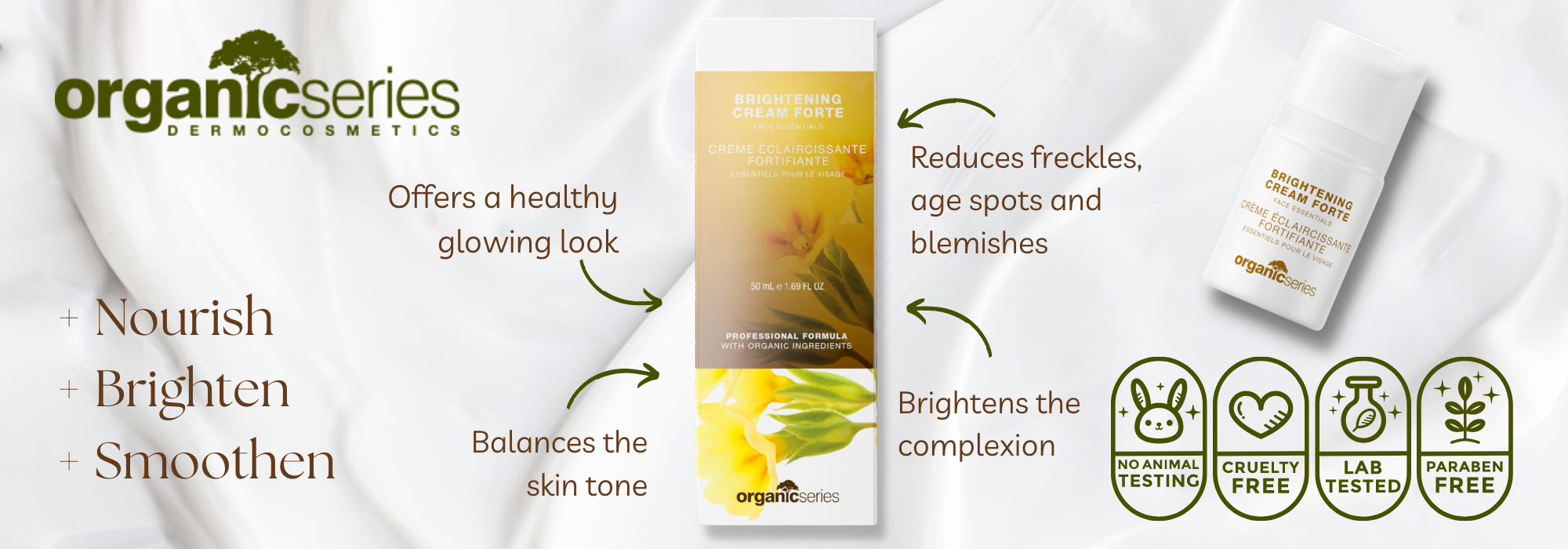
More inspiration
Follow Organic Series UK on instagram and facebook for more inspiration, expert tips and special discount codes!c
Fight skin discolourations with Organic Series
-
Brightening Serum Intensive | By Organic Series | 15ml, 50ml, 200ml
From £ 12.00Rated 4.60 out of 505 reviews -
-
Face Moisturiser with Sunscreen SPF20 | Moisturising Cream SPF20 By Organic Series | 15ml, 50ml, 200ml
From £ 12.00Rated 4.89 out of 509 reviews -
Lemon Algae Face Mask | By Organic Series | 200ml, 500ml, 1l
From £ 21.00Rated 5.00 out of 502 reviews -

Maria
Cosmetic Chemist
Maria
All Author Posts

